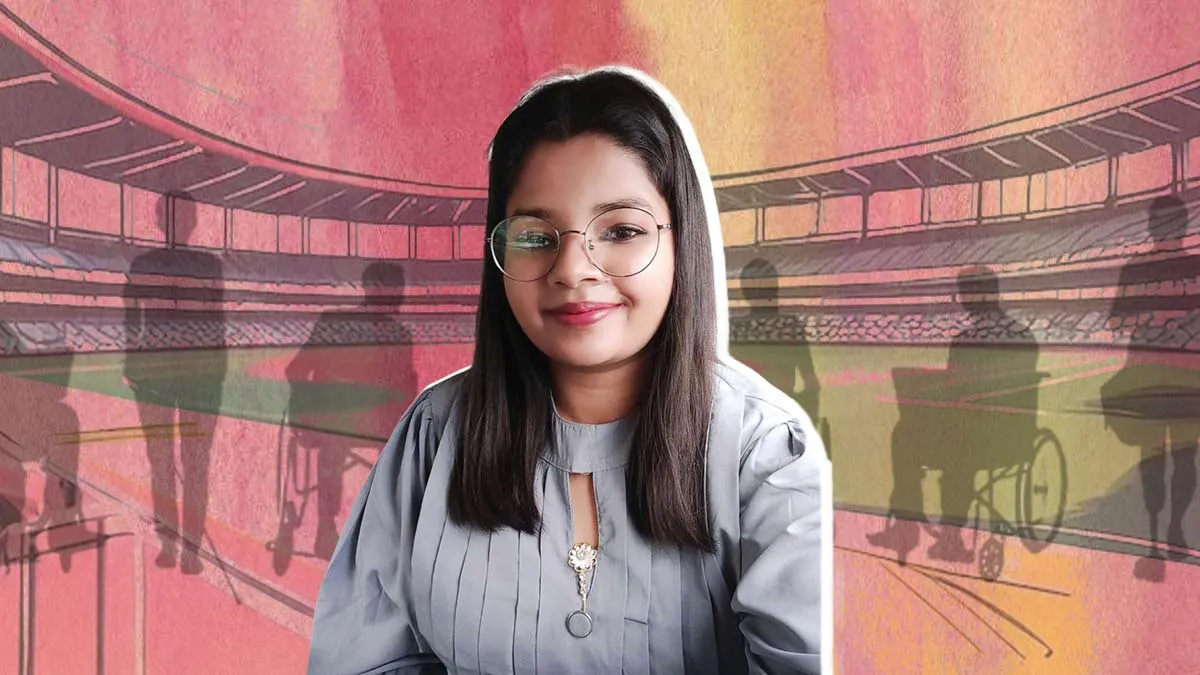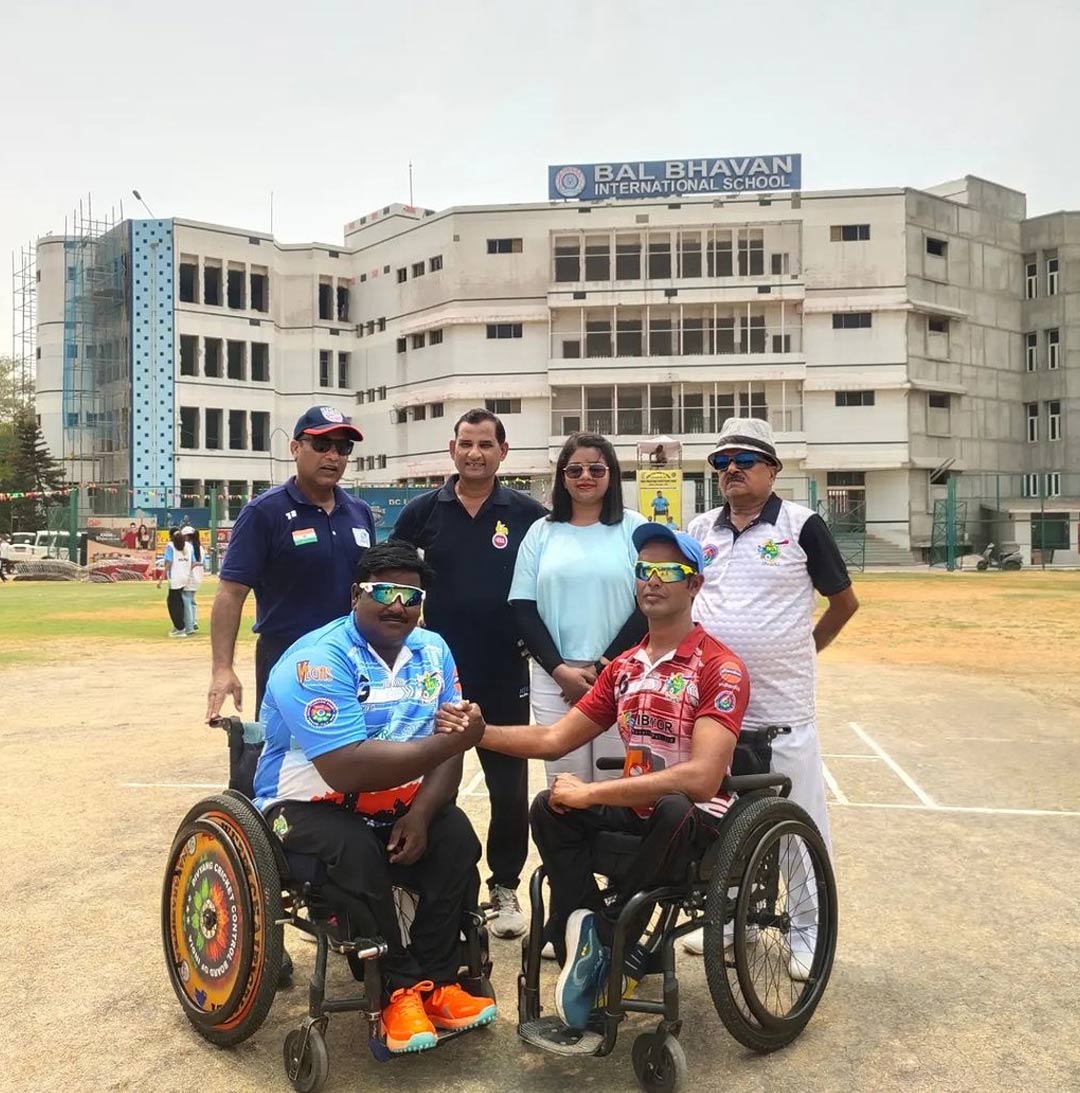
Born in Agra, 29-year-old Ghazal Khan was pursuing her MBA when a near-fatal accident in 2015 changed the course of her life. She was riding her scooty to an examination when she was hit by a vehicle. “Doctors declared me 98% dead,” she recalled. Ghazal spent nine days in a coma on a ventilator, but despite overwhelming odds, she made a remarkable recovery.
Her face was disfigured, and she had to leave her MBA program to undergo six months of bed rest. She briefly considered preparing for the UPSC exams, but that too didn't work out, leading to a period of depression. At her lowest point, a phone call from a disabled cricket player sparked her transformation. “I thought, there are people living happy lives despite losing hands or legs. I’ve been given a second chance; my limbs are functional—why am I feeling so defeated?” she reflected.
Now the CEO of the Divyang Cricket Control Board of India, Ghazal is committed to promoting cricket among individuals with physical disabilities. She also serves as Secretary of the International Cricket Council for the Physically Challenged, helping shape the global agenda for disability cricket.
Cricket in India is predominantly seen as a male-dominated sport. Women’s cricket, even at its highest levels, often garners a fraction of the support and attention that men’s cricket does.
“Being a young woman, people often don’t take me seriously,” Ghazal said. She believes that the underrepresentation of women in cricket, particularly in leadership positions, contributes to this mentality. She noted that even the BCCI, one of the world’s most prominent cricket bodies, has very few women in key roles.
View this post on Instagram
Safety is another concern. As Ghazal travels frequently for work, she often feels anxious due to the potential risks women face. “With the way things are in society, I’m constantly on alert for my safety,” she said.
Despite these challenges, Ghazal was determined to develop a female team for disability cricket. In 2023, her efforts paid off when the first-ever women’s Divyang cricket team was established. The following year, in 2024, the first women’s Divyang national cricket tournament took place, with the team from Jammu and Kashmir taking home the title.
In many of the organizations she is part of, both in India and internationally, Ghazal is often the only woman in the room. “That’s something I’m very proud of,” she admitted.
Ghazal’s relentless passion means she’s willing to take on any task—whether it’s putting up posters, filming with a camera, or creating presentations—to get the job done. She’s also expanding her efforts globally, with the launch of the Gulf Inclusive Cricket Board and Australia Inclusive Cricket Association on the horizon.
The Divyang Cricket Control Board of India currently has over 4,000 male cricketers with disabilities and around 300-400 female cricketers.
“When you watch Divyang cricket, it will blow your mind,” Ghazal said. “You’ll see players in wheelchairs hitting sixes, bowlers with one arm delivering incredible balls, and fielders diving for catches from wheelchairs. They may be physically challenged, but mentally, they are incredibly strong.”
Yet, despite their skills, the Divyang cricket team receives far less attention and support than the Indian men’s cricket team. “Cricket is cricket, no matter who plays it. It shouldn’t matter if the player is male, female, or disabled. Everyone deserves the same level of support,” Ghazal emphasized.
So far, Divyang cricket tournaments have been funded primarily through sponsorships, but funding remains one of the biggest obstacles.
Ghazal also pointed out that there are multiple formats of Divyang cricket, including wheelchair cricket, blind cricket, and deaf cricket. To help players perform at their best, she argues that the community needs a national training academy akin to the BCCI, where disabled cricketers can receive professional coaching and support.
While there is still much work to be done, Ghazal Khan’s journey from near death to becoming a leading figure in disability cricket is a testament to her resilience and determination, and she continues to inspire others by breaking barriers and challenging stereotypes in the world of sports.
Also watch this video
Herzindagi video
Our aim is to provide accurate, safe and expert verified information through our articles and social media handles. The remedies, advice and tips mentioned here are for general information only. Please consult your expert before trying any kind of health, beauty, life hacks or astrology related tips. For any feedback or complaint, contact us at [email protected].